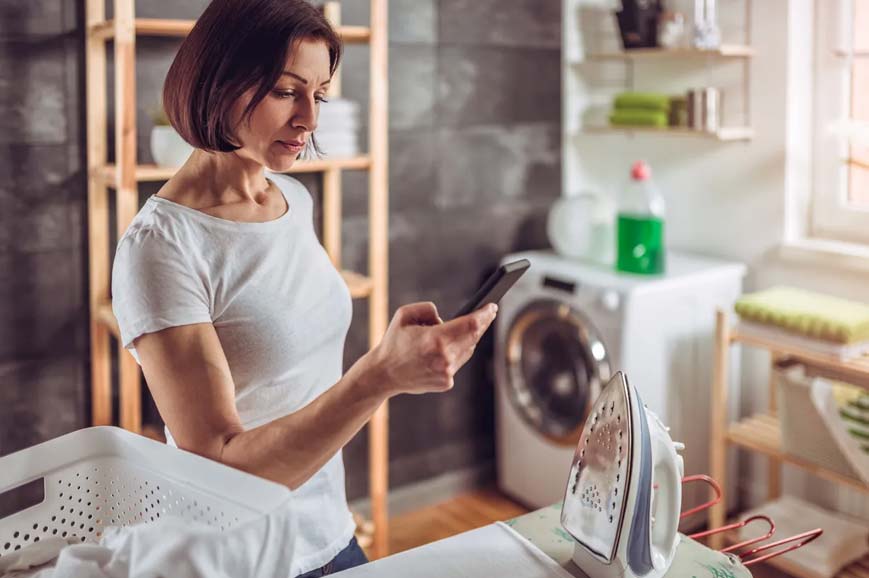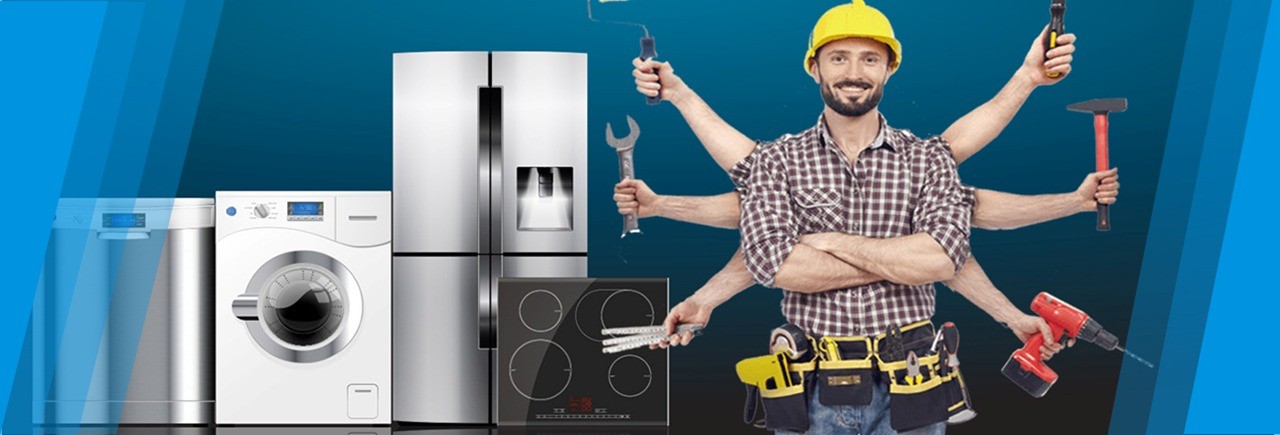The Ultimate Guide to Recognizing Appliance Fixing in the house
When your refrigerator quits cooling or your oven rejects to warmth, it can feel frustrating. Understanding appliance repair work in your home can save you money and time. You'll find out to identify signs and symptoms, utilize crucial tools, and adhere to a systematic troubleshooting procedure. Yet prior to you start, there are crucial safety and security preventative measures you need to take into consideration. What are the most usual troubles, and just how can you fix them? Let's check out the fundamentals.
Typical Appliance Problems and Their Symptoms
When your appliances start acting up, it's important to acknowledge the indications beforehand. Overlooking them can bring about bigger issues and expensive repair services. For circumstances, if your fridge isn't cooling down appropriately, you may observe cozy places or condensation forming. This might show a failing compressor or an obstructed vent.Your dishwashing machine may show problems via unclean recipes or unusual sounds during cycles. If you listen to grinding or clanking, it's time to investigate.A washing machine that won't spin or drain pipes can leave you with soggy washing, suggesting a clogged drainpipe or a malfunctioning pump.Lastly, if your oven's temperature seems off or it takes for life to preheat, you could be handling a damaged thermostat. By staying sharp to these symptoms, you can address issues before they intensify into significant fixings.
Essential Devices for Device Fixing
When you're dealing with home appliance repairs in the house, having the right devices is essential. Basic hand devices like screwdrivers and pliers will certainly aid you dismantle and deal with various home appliances, while electrical screening gadgets ensure you're working safely with wiring. Allow's review what you require to get going on your fixing trip.
Standard Hand Devices
Having the right devices is necessary for reliable home appliance fixing in the house. Begin with a trustworthy screwdriver collection, including both flathead and Phillips kinds, as screws prevail in device setting up. Pliers are also important; they aid with gripping, twisting, and reducing wires or small parts. A pair of needle-nose pliers can reach limited places quickly. You'll require a good flexible wrench for tightening up or loosening nuts and screws. An utility blade comes in handy for cutting via packaging or insulation. Don't forget a durable workbench or surface to safely arrange your devices and components. With these fundamental hand tools, you'll be well-prepared to tackle most appliance fixings that come your means.
Electric Testing Gadgets
Alongside standard hand devices, electric screening tools play a crucial duty in home appliance fixing. These tools assist you detect electrical problems and warranty appliances work safely. A multimeter is crucial; it gauges voltage, current, and resistance, allowing you to pinpoint issues quickly. A non-contact voltage tester is an additional must-have, letting you find real-time wires without making direct get in touch with, enhancing your security. Clamp meters are terrific for gauging current flow in wires without disconnecting them, saving you effort and time. Additionally, circuit testers can rapidly examine if outlets are operating properly. By utilizing these devices, you'll improve your troubleshooting procedure and enhance your repair service skills, making device upkeep a great deal simpler.
Step-by-Step Guide to Diagnosing Device Issues
When your appliance breaks down, it can be discouraging, however detecting the issue doesn't have to be overwhelming. You'll discover to recognize typical problems and apply reliable troubleshooting methods. Let's go through the steps to obtain your home appliance back in working order.
Common Device Troubles

Troubleshooting Methods Discussed

Fixing Major Kitchen Area Home Appliances: A Closer Look
Have you ever before asked yourself exactly how to deal with common problems with your kitchen area devices? Fixing significant kitchen area appliances like fridges, stoves, and dishwashing machines can be easier than you assume. Start by identifying the problem-- whether it's a refrigerator not cooling or an oven that won't heat up. Often, a simple reset or examining the power resource can address the issue.For refrigerators, clean the condenser coils and examine the door seals. If your stove's not heating, check the heating aspect and thermostat. Dishwashing machines could just need a tidy filter or a reset to obtain them back in activity. Constantly disconnect the device prior to diving into fixings to guarantee your safety.Don' t neglect to seek advice from the individual handbook for specific repairing tips connected to your model. With a little bit of persistence and the right tools, you can with confidence deal with home appliance repair work and conserve cash in the process!

Troubleshooting Washing Devices: Tips and Techniques
When your washing home appliances begin acting up, it can feel overwhelming, however fixing them does not have to be a problem. Start by checking the power supply. Verify the device is plugged in and the electrical outlet is operating. Next off, check the door or lid button; a damaged switch can stop the equipment from operating.For washers, if it's not rotating, inspect for out of balance lots. Redistributing the garments could solve the issue. If your clothes dryer isn't home heating, clean the lint filter and examine the air vent for blockages.Listen for unusual sounds; they can indicate a problem. If your device is leaking, inspect the hoses for fractures or loosened links. File any kind of error codes shown on digital displays, as they can assist you in recognizing the issue. Seek advice from the user manual for details repairing ideas related to your model.
Security Preventative Measures to Take During Services
Before you start any appliance fixings, it's necessary to focus on security to stop mishaps or injuries. Unplug the appliance or turn off the circuit breaker to ensure no power reaches it while you function. Usage protected devices to minimize the risk of electric shock. Put on safety goggles and handwear covers to protect on your own from sharp edges or debris (Lg Dryer repair near me Dependable Refrigeration & Appliance Repair Service).Make certain your work area is neat and well-lit, so you can see what you're doing. Maintain kids and pets far from the location to stay clear of interruptions and prospective dangers. If you're taking care of gas home appliances, be extra cautious; look for leakages prior to proceeding.Take your time, and do not rush with repair work. If you feel unpredictable regarding any action, it's far better to stop and research study than to think. Following these precautions will certainly help create a safer environment for your do it yourself appliance repair service task
When to Call a Specialist for Aid
How do you recognize if it's time to employ a specialist for home appliance repairs? If you have actually tried standard troubleshooting without success, it's a clear indication. If your home appliance still will not start or shows uncommon noises after resetting it, don't hesitate to look for specialist help.When you discover leaks, smoke, or melting smells, prioritize security and call a pro quickly. These issues can result in more significant damage or present dangers to your home.Also, if your device is under warranty, contacting a specialist is frequently the finest course. They can assure that repair services will not void your service warranty, saving you money in the long run.Finally, if you're uncertain or uneasy with intricate repair work, it's smart to leave it to the professionals. Keep in mind, dealing with challenging concerns without the appropriate experience can cause pricey errors. Count on an expert when doubtful!
Often Asked Inquiries
How Can I Stop Appliance Problems in the Future?
To avoid home appliance problems in the future, you need to execute normal upkeep, look for wear and tear, tidy filters, and prevent overloading. Staying aggressive will assist extend their life-span and keep them running smoothly.
What Are one of the most Typical DIY Home Appliance Repair Work Mistakes?
You may overlook security preventative measures, skip repairing steps, or use inaccurate devices when attempting DIY home appliance repairs. Hurrying the process or neglecting producer standards can cause even more considerable problems and pricey mistakes. Keep individual and notified!
Exactly how Do I Know if a Part Demands Replacement?
You can tell if a part needs substitute by examining for unusual noises, leakages, or irregular performance. If the home appliance has a hard time to run properly or shows noticeable damage, it's likely time for a substitute.
Can I Utilize Generic Components for Appliance Services?
Yes, you can utilize common components for device repair services, yet establish they work - Dryer repair Oro Valley Dependable Refrigeration & Appliance Repair Service. Common parts may save you cash, but they could affect efficiency or longevity, so weigh your options carefully prior to deciding
What Warranties Cover Home Appliance Repair Works?
A lot of home appliance guarantees cover repairs for producing problems, however they typically exclude damage from misuse. Check your guarantee terms carefully, as some could need utilizing licensed service technicians and original parts for website coverage to stay legitimate.